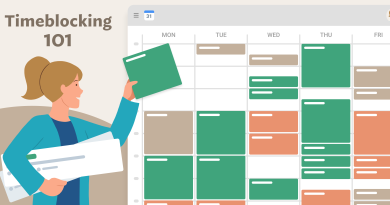Managing Your Time by Setting Boundaries
In our fast-paced and demanding world, managing time effectively is crucial for maintaining work-life balance and achieving our goals. One powerful yet often overlooked strategy in time management is the power of saying no. By setting boundaries and learning to decline requests or commitments that do not align with our priorities, we can regain control over our time and focus on what truly matters. In this blog post, we will explore the power of saying no and provide practical tips on how to manage your time by setting boundaries.
- Recognize the Importance of Setting Boundaries: Setting boundaries is essential for protecting your time, energy, and overall well-being. It allows you to establish limits on what you can take on and ensures that you have enough resources to devote to your priorities. Understanding the significance of boundaries is the first step towards effective time management.
- Clarify Your Priorities: Before you can effectively set boundaries, it is crucial to clarify your priorities. Take some time to reflect on what matters most to you in your personal and professional life. Identify your core values and goals. This clarity will provide a foundation for making informed decisions about where to invest your time and energy.
- Learn to Say No: Saying no can be challenging, especially if you are someone who tends to be accommodating or afraid of disappointing others. However, it is essential to learn to say no when requests or commitments do not align with your priorities or overload your schedule. Remember that saying no is not a sign of selfishness but a way to honor and protect your time and well-being.
- Practice Assertiveness: Assertiveness is key when setting boundaries. Clearly and respectfully communicate your limitations and commitments to others. Use “I” statements to express your needs and explain why a particular request or commitment does not align with your current priorities. Practice assertiveness in a kind and empathetic manner, while remaining firm in your decisions.
- Set Realistic Expectations: Setting realistic expectations for yourself and others is an important aspect of boundary setting. Be honest about what you can reasonably accomplish within a given timeframe. Avoid overcommitting or taking on more than you can handle. By setting realistic expectations, you reduce stress and increase the likelihood of achieving your goals.
- Prioritize Self-Care: Setting boundaries also involves prioritizing self-care. Recognize that your well-being is as important as any other commitment. Make time for activities that recharge and rejuvenate you, such as exercise, leisure, hobbies, or spending time with loved ones. Prioritizing self-care ensures that you have the energy and resilience necessary to manage your time effectively.
- Communicate Your Boundaries Clearly: To effectively manage your time, it is crucial to communicate your boundaries clearly to others. Let colleagues, friends, and family members know about your availability and limitations. Clearly communicate your work hours, personal time, and any specific commitments you have made. This transparency helps set expectations and minimizes misunderstandings.
- Be Firm and Consistent: When setting boundaries, it is important to be firm and consistent in upholding them. Avoid wavering or compromising on your boundaries unless absolutely necessary. Consistency sends a strong message that your time and priorities are valuable and deserving of respect.
- Practice Time Blocking: Implement time blocking, a technique where you allocate specific blocks of time for different activities or tasks. By scheduling your time intentionally, you create dedicated periods for focused work, personal activities, and rest. Time blocking helps reinforce your boundaries and ensures that you allocate time according to your priorities.
- Regularly Assess and Adjust: Time management and boundary setting are ongoing processes. Regularly assess how well your boundaries are working for you. Reflect on any challenges or areas for improvement. Adjust your boundaries as needed to reflect changes in your priorities or circumstances. Flexibility and adaptability are key to maintaining effective time management.




